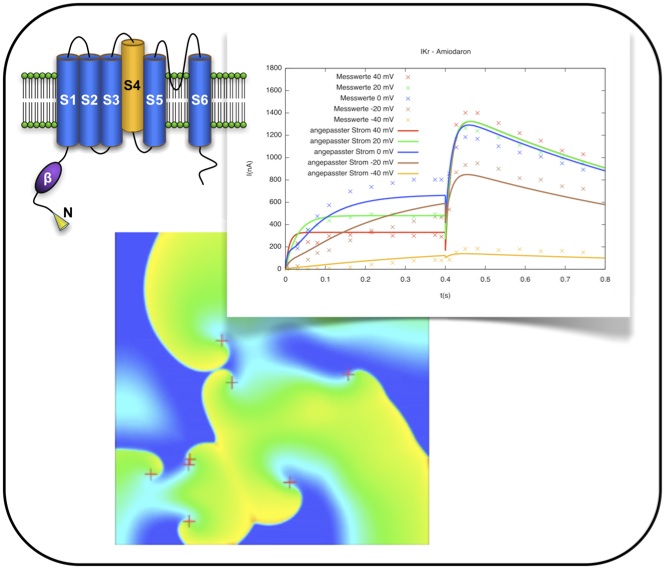Electrophysiological Investigation of Familial Atrial Fibrillation
- contact:
- project group:
Cardiac modeling
Atrial fibrillation (AF) is the most common cardiac arrhythmia, affecting more than 1% of the population. In general, AF is associated with congestive heart failure, cardiac ischemia or other structural cardiopulmonary diseases. However, some of the patients do not suffer from these comorbidities. Instead, these patients are supposed to be genetically predisposed to AF, which is called “familial AF”. Different mutations of ion channels are already known to favor AF. Nevertheless, the electrophysiological mechanisms underlying the initiation and persistence of AF are not completely understood yet.
Several drugs exist that influence cardiac electrophysiology initiating or reducing arrhythmias. However, the therapy of AF using anti-arrhythmic drugs still has to be improved, since the exact mechanism of action is often unknown.
This research project focuses on the investigation of the impact of genetic mutations on the initiation and persistence of AF. For this purpose, measurements describing the effects on ion channels are integrated in electrophysiological models of the atria. Afterwards, the resulting changes of the electrical excitation are analyzed regarding the stability of cardiac electrophysiology. Then, the impact of certain anti-arrhythmic drugs on the initiation and termination of AF is investigated as well.

Publications
- G Seemann et al.. Atrial Fibrillation-based Electrical Remodeling in a Computer Model of the Human Atrium. Proceedings Computing in Cardiology (37), 417-420, 2010
- G Seemann et al.. Investigating Arrhythmogenic Effects of the hERG Mutation N588K in Virtual Human Atria. Lecture Notes in Computer Science (5528), 144-153, 2009

